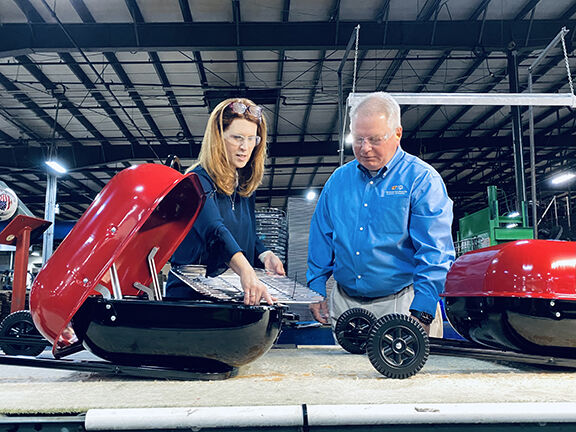As the manufacturing landscape evolves at record speed, small and medium-sized manufacturers (SMMs) face growing pressure to modernize their workforce. Automation, digital transformation, and changing customer demands are reshaping the future of manufacturing. To stay competitive, companies must not only adopt new technologies but also invest in the people who power them.
Why Future-Proofing Your Workforce Matters
Manufacturing workforce trends show a widening skills gap, with many companies struggling to recruit and retain qualified talent. In fact, one of the biggest challenges facing manufacturers today is preparing their workforce for the shift to advanced technologies and smart factories. Building a future-ready workforce isn’t just about hiring new talent—it’s about strategically upskilling your existing team.
1. Start with a Skills Assessment
Before launching new training initiatives, assess your current workforce capabilities. Identify critical skill gaps related to:
- Automation and robotics
- Human-machine interfaces (HMIs)
- Data analysis and digital literacy
- Additive manufacturing (3D printing)
- Quality control and process optimization
This evaluation lays the groundwork for targeted upskilling programs that address real business needs.
2. Invest in Upskilling for Industry 4.0
Technologies like collaborative robots (cobots), ERP systems, and smart sensors are transforming how products are made. Equipping your workforce with these skills ensures smoother tech adoption and minimizes disruption.
Look for training programs that include:
- Hands-on experience with new technologies
- Digital process control training
- Safety and risk management for automated systems
- Programming and troubleshooting for cobots and HMIs
3. Create Career Pathways to Boost Retention
A future-ready workforce is also a loyal one. Employees are more likely to stay when they see clear career paths and opportunities for advancement. Developing a skills-based pay structure and outlining job progression ladders helps motivate and retain top performers.
4. Develop Leadership from Within
Upskilling isn’t limited to technical skills. Strong leaders are essential for navigating change and driving innovation. Consider leadership development programs that include:
- 360-degree feedback
- Coaching and mentoring
- Strategic decision-making and communication training
Training your supervisors to become effective leaders strengthens company culture and improves team performance across the board.
5. Leverage Proven Frameworks Like ISO and ERP
Use quality systems like ISO 9001 or ERP implementation as training tools. These frameworks teach discipline, accountability, and process optimization—all critical for a resilient workforce. Plus, they prepare your business to meet industry standards and open doors to new customers.
TMEP Can Help You Get There
Building a future-ready workforce doesn’t have to be overwhelming. The Tennessee Manufacturing Extension Partnership (TMEP) provides expert guidance and hands-on support to help manufacturers develop tailored upskilling plans. From technical training to leadership coaching, we connect you with resources that align workforce development with long-term business goals.
Download our guide: How to Use Upskilling to Future-Proof Your Manufacturing Business — your step-by-step roadmap to getting started.

